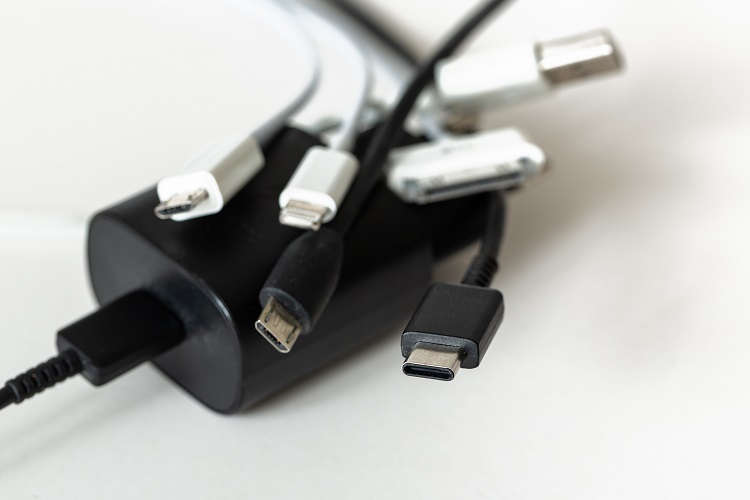 EU proposes standardization of charging cables for cell phones according to the USB-C standard,
saving and avoiding waste through standardization.
EU proposes standardization of charging cables for cell phones according to the USB-C standard,
saving and avoiding waste through standardization.
Sustainable smartphones: EU opts for USB-C as the standard
20. September 2022 Published by Raphael DoerrAt the start of June 2022, the EU put an end to a debate on standardizing charging cables for many electronic devices that had lasted for more than 10 years. From mid-2024, for example, the USB Type-C port will become the standard for smartphones, tablets, cameras, headphones and portable speakers. It’s a standard that Gigaset has already implemented long before then. But that’s not all that the German manufacturer is doing to produce sustainable smartphones.
Sustainable smartphones: less electronic waste
The EU’s aim in taking this step is primarily to avoid electronic waste, since the EU Commission estimates that an annual 11,000 tonnes of electronic waste can be attributed to disposed chargers. This amount of waste can, however, be significantly reduced with standardized chargers, by making it possible to continue using old chargers for new smartphones. Accordingly, consumers can now decide for themselves whether they also want to buy a new charger when they buy a smartphone.
The new standard not only additionally protects the environment but is also very practical. In the future, it will put an end to the confusion of different chargers, so you will only need to take one charger with you when you go on vacation.
Sustainable smartphones: “Made in Germany”
The smartphones from Gigaset are made in Germany, in Bocholt (North Rhine-Westphalia), at a modern and clean production plant. That means short delivery routes and less CO2. “Made in Germany” also means that higher social and ecological standards apply than, for example, in Asia, where most competitor products are made.
Repair instead of throwing away
A long service life is just as much a feature of sustainable smartphones as is the option to repair them. “Made in Germany” allows Gigaset to carry out repairs right here. Smartphones can be handed in to the repair service at the Bocholt production site. Repairs can also be carried out by the certified service partner Phone Service shops in many major German cities. Anyone without access to these options can simply send in their smartphone. They will usually get it back within just three to five days.
Sustainable smartphones: Replaceable battery is vital
A vital component for the sustainability of a smartphone is the battery. On the one hand, it’s important that it doesn’t lose power too quickly. On the other, it should definitely be replaceable. A lot of smartphones from Gigaset already meet this requirement.
But the user’s own behavior also has a big influence on the battery life, which is why Gigaset has compiled a list of comprehensive tips for its customers on how to ensure that a battery lasts for a long as possible.
Sustainable smartphones: recyclable packaging
How sustainable a product is also depends on its packaging. 90 percent of the packaging for sustainable smartphones from Gigaset is made from recycled materials that are 100 percent recyclable. The company uses lightweight corrugated cardboard, since it offers the best protection with low consumption of resources.
But simply saving CO2 isn’t enough, which is why Gigaset offsets CO2 emissions by financing climate protection projects. The Gigaset GS4 is the first smartphone from the German manufacturer with climate-neutral packing.
 Comments
Comments

 en
en 







